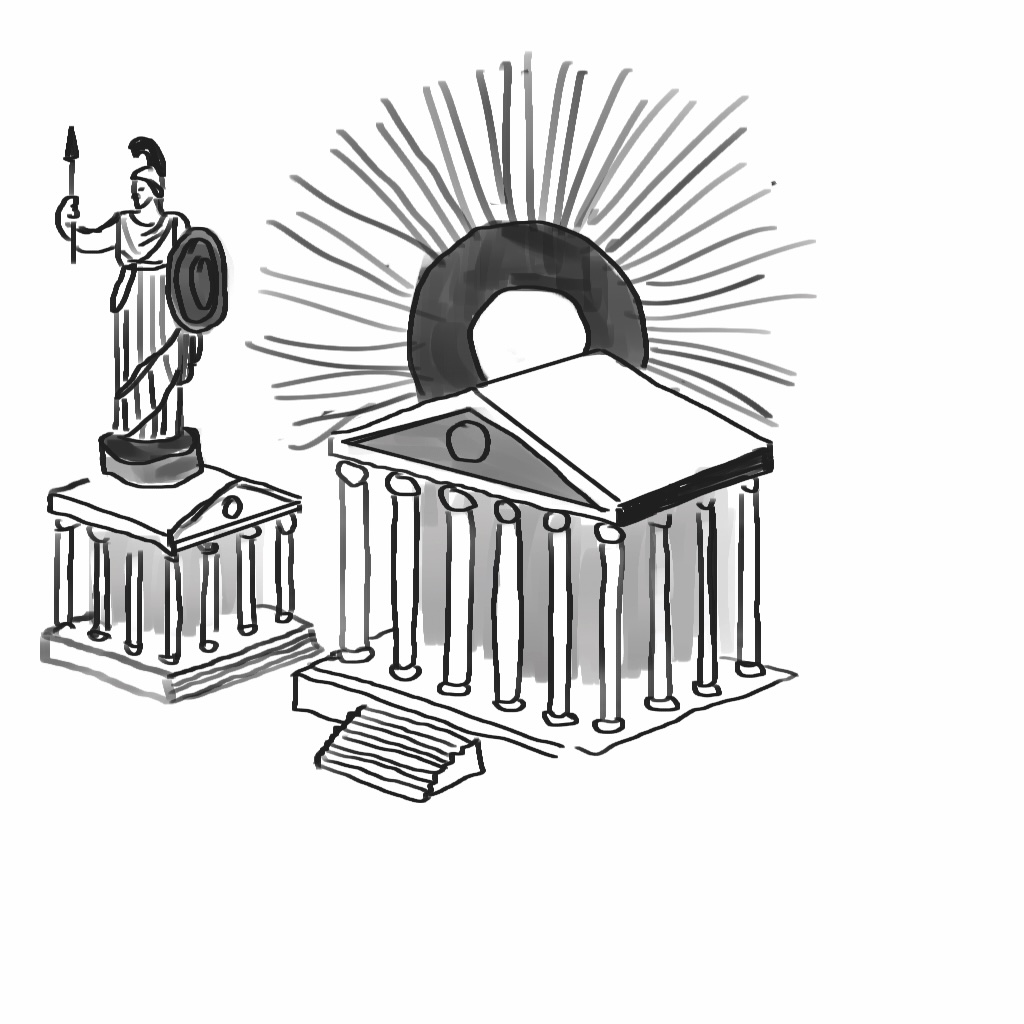Plato: The critic we desperately need
February 21, 2025
 Ethan Lam
Ethan LamThere are few works as unsettling as “The Republic.” Not because of its complexity or reputation but because it refuses to let us hide from the hardest questions: What is justice? Is it even possible? And what kind of life is truly worth living?
Plato’s “The Republic” isn’t a blueprint for an ideal society. That’s the first misunderstanding to leave behind. It’s a thought experiment, an interrogation of our assumptions about what justice really is. Socrates, as usual, leads the charge, but this time, the stakes are higher. Instead of merely prodding his interlocutors—as he does in other dialogues—here he constructs an entire city, only to pull it apart piece by piece.
At the heart of “The Republic” is a question that refuses to resolve: Is justice better than injustice? It’s a deceptively simple premise, but under Socratic scrutiny, it becomes a labyrinth. Plato doesn’t just ask whether justice is preferable; he asks whether it’s even possible. He forces us to confront the contradictions and compromises embedded in our notions of fairness, morality and societal order.
Take the allegory of the cave. This is not a comforting story about enlightenment. It’s a brutal, disorienting metaphor about the human condition. We are prisoners, chained in darkness, mistaking shadows for reality. Liberation isn’t easy; it’s painful and blinding, and not everyone wants to leave the cave. Worse, those who escape and return to share the truth are often met with hostility. In an age of misinformation and entrenched partisanship, the allegory feels less like philosophy and more like prophecy.
But the cave is just one thread in Plato’s web. “The Republic” is also about education and its limits, about the corrupting nature of power and about the tension between individual freedom and collective responsibility. It’s about the roles we play in our communities and the masks we wear to sustain them. And yes, it’s about politics—not as a system of governance, but as a reflection of the soul. Plato’s city, with its rigid classes and philosopher-kings, isn’t an ideal to aspire to; it’s a mirror held up to our deepest anxieties and aspirations.
Reading “The Republic” is an act of courage. It doesn’t offer solutions. It doesn’t let you off the hook. It asks you to sit with discomfort, to admit the ways in which you might be complicit in injustice and to wrestle with the impossibility of perfection. Plato doesn’t give us answers; he gives us tools—questions sharp enough to cut through the noise, ideas resilient enough to withstand centuries of critique.
Why read “The Republic?” Because, at most, one class a year—Classical Political Philosophy—will read it in its entirety. It refuses to let us settle. It demands we confront the shadows on our walls and ask what truths we’re too afraid to see. It reminds us that justice isn’t something we find, but something we forge—in debate, in doubt and in the messy, ongoing work of being human. And when all is said and done, “The Republic” leaves us with one simple, aching truth: The pursuit of justice is worth the struggle, not because it’s easy but because it’s the only way we become whole.

Comments
Before submitting a comment, please review our comment policy. Some key points from the policy: